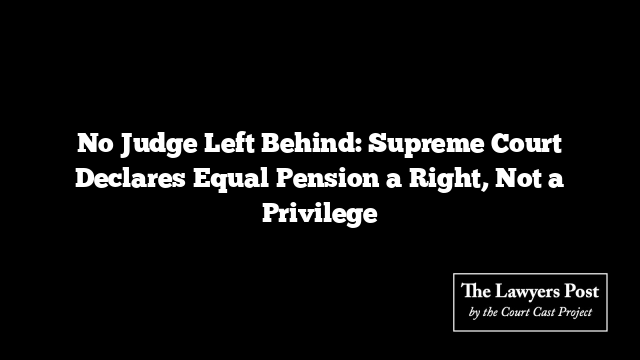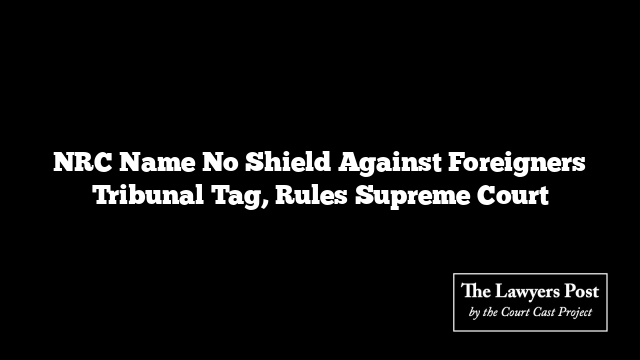In a judgment that resets the balance scales for India’s retired High Court judges, the Supreme Court has ruled unequivocally: every judge who dons the robes of a constitutional office must walk into retirement with equal dignity—and equal pension—no matter when they served, or how they arrived at the bench.
On Monday, the country’s highest court dismantled long-standing disparities in judicial pensions, declaring that “one rank, one pension” must apply to all retired High Court judges. Whether a judge climbed the ladder from the judicial services or stepped in from the bar, permanent or additional, early retiree or late bloomer—the bench affirmed that these distinctions hold no ground when it comes to post-retirement benefits.
The verdict, delivered by a bench comprising Chief Justice of India BR Gavai and Justices AG Masih and K Vinod Chandran, doesn’t just tidy up inconsistencies—it plants a constitutional flag in the ground: equality doesn’t expire with retirement.
Here are the cornerstone principles laid down:
- Full Credit Where Due: A judge’s entire tenure on the High Court bench must count toward pension, calculated on their last drawn judicial salary—not the salary they would’ve earned had they remained district judges.
- No Ceiling, No Exception: Any artificial cap on pensions under the High Court Judges Act, previously nullified in earlier judgments, remains unconstitutional under Article 14. The Court reaffirmed its previous stand: ceilings are discriminatory and long gone since January 1, 1996.
- Uniform Treatment Across the Board: A constitutional office cannot host discrimination. Judges must receive the same pension regardless of whether they came from the services or the bar. Equality of rank must extend into retirement.
- Every Experience Counts: Prior service in judicial ranks or legal practice before elevation to the High Court must be accounted for while determining pension.
- Bar vs Bench Line is Arbitrary: Splitting judges into categories based on their entry path is not only unreasonable but also legally indefensible. The robe, once worn, erases those differences.
- Family Entitlements Are Non-Negotiable: The principle of equal treatment applies to family pensions too. No widow or dependent should face lesser dignity due to the judge’s path to the bench.
- Gaps in Service? Still Covered: Judges who had service breaks between roles—say, from retirement as a district judge to elevation as an HC judge—must still have their pension calculated on High Court salary.
- NPS No Barrier to GPF: Even if a judge began their career under the New Pension Scheme, retirement as an HC judge entitles them to the General Provident Fund benefits under the HCJ Act.
With this judgment, the Supreme Court has sent a resounding message: judicial dignity doesn’t clock out at retirement. The robe may hang, the bench may change—but fairness, once owed, must be paid in full.





